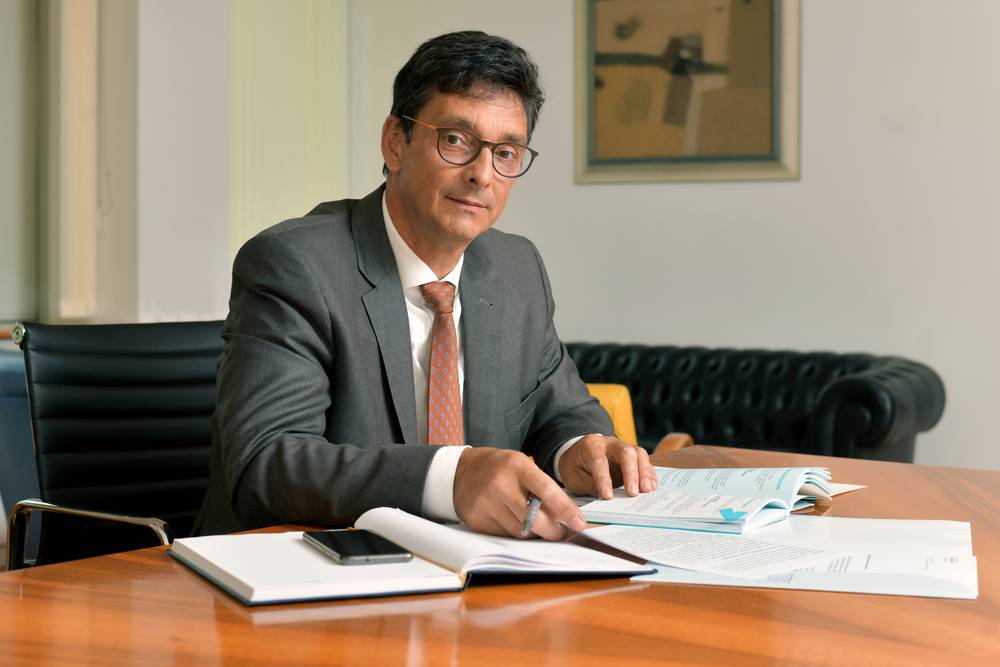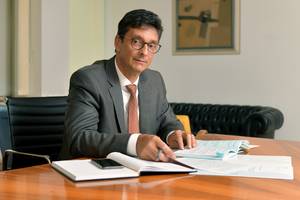Dear Slovenian Citizens,
we are marking 72 years since the adoption of the Universal Declaration of Human Rights. The period before its adoption at the session of the United Nations General Assembly in Paris in 1948 left a significant mark on the world. The effects of the horrors of war were exceptional and so were the efforts to create a world of peace, justice and freedom. A world in which everyone, irrespective of their social, ideological, religious or any other personal circumstances, would be recognised as having equal and inalienable rights. Rights that safeguard the dignity of every person and are universal and accessible to all.
Unfortunately, we have learned from experience that, despite our adopting the Declaration, the violations of human rights and fundamental freedoms around the world have not ended. Although the document was translated into more than 500 languages and numerous international treaties and other normative acts were ratified on its basis, their implementation in certain parts of the world remains very limited. In recent decades, great progress has certainly been made in Slovenia, but that does not mean that things could not further improve. Which is why it is very important that our rights and fundamental freedoms obtained and guaranteed by the Constitution of the Republic of Slovenia and other acts are not only maintained, but also defended and strengthened.
We must not overlook the fact that this year’s Human Rights Day is commemorated at a time of global crisis. The coronavirus pandemic has demanded or still demands a response from the expert community and the government. For almost an entire year now, we have been encountering measures intended to protect our lives and health which encroach upon our rights and limit them. Whereby I emphasise that the measures must be substantiated by experts; they must be legal, proportionate, non-discriminatory and of limited duration. For people to observe such measures consistently, general trust in the conduct of the government is required, and it is also crucial that the measures are adopted thoughtfully and are duly clarified. This particularly applies to the time when the epidemic is declared, as unsuitable conduct can indirectly trigger doubts as to its legitimacy.
This time certainly calls for a moment of contemplation. Not only about the meaning and understanding of our rights, but also about our values and the culture associated with them. At this point, I particularly refer to the importance of a culture of tolerance, a culture of acceptance and dialogue, a culture of integration and, finally, a culture of mutual communication.
In these challenging times, our future seems uncertain. The effects of the health crisis reveal themselves through the epidemic of distress arising due to the COVID-19 disease or other illnesses, the loss of loved ones, lack of social contact, isolation, loss of work or work overload, and anguish linked with remote schooling and family life. Many have found themselves even more on the margins than before. Poverty is increasing, and violence, inequality and discrimination are on the rise. This global crisis has caused other fault lines as well, hindering the realisation of human rights.
In order to fully recover and build the world that we desire – more resilient, fair and sustainable – we will have to further actively invest in the measures to eliminate these fault lines and eventually re-establish tolerance, compassion and humanity. Although we sometimes feel alone in this experience, we are nevertheless not cut off and isolated because we are a part of a larger human experience which I earnestly hope will not further divide us but instead bring us closer. To see each other as equal partners and not as opponents, to respect one another more and listen to each other, connect and cooperate to achieve common goals. Today, social partnership is more important than ever before.
To prevent the crisis of values, active two-way communication and dialogue are imperative in all fields. Because this is the only way to reach agreements and overcome conflicts, disagreements and intolerance. No crisis can justify a lack of dialogue, arbitrary decision making or encroachment upon personal freedoms from a position of power. After all, a socially responsible community contributes to the co-creation of a positive social climate and the culture of dialogue. Only in this way can the recovery process after the coronavirus pandemic be effective.
In recent days, I have frequently thought about people who have become ill, their relatives and all of those who have passed. About our loved ones in retirement homes and in other institutional care facilities; the individuals who are most vulnerable. But I also remain very optimistic that we can succeed. Many trials are behind us and many are still ahead, but it is very important that, although we stand apart this very moment, we are still going forward together. Thank you to all who are doing everything they can to support the most vulnerable among us so that their voices are heard. I trust that this solidarity and togetherness will not be forgotten once the pandemic is over.
Let the people and human rights remain at the centre of our efforts for an expedient, better and high-quality recovery of the whole of society and the building of a fairer future for all. Let it be as bright as possible. In all fields.
Peter Svetina
Human Rights Ombudsman

